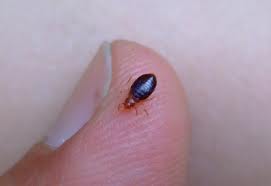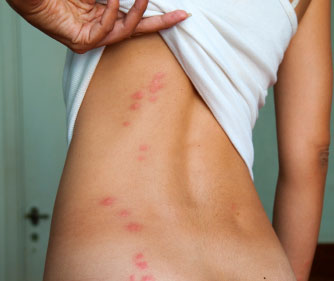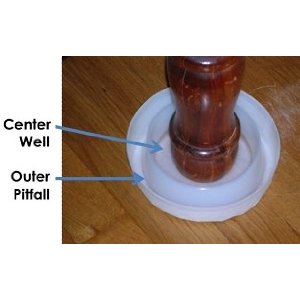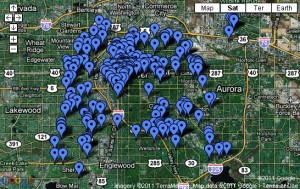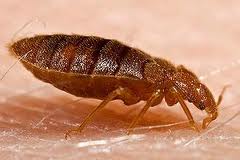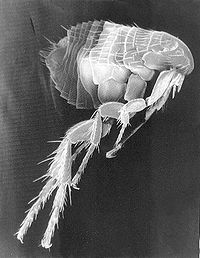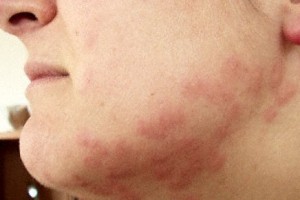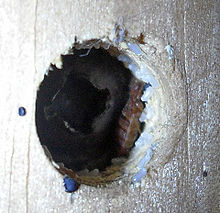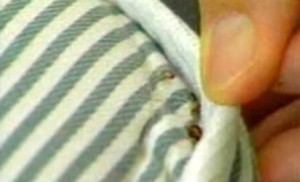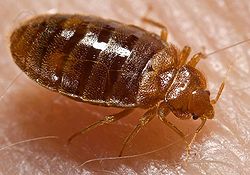Bed bugs were once quite common as a household pest. Their population declined gradually through the mid 20th century. As you have probably seen through recent news reports, bed bugs have undergone a dramatic comeback in the world at large and in North America there are many reports of increasing numbers of infestations.
Thanks to their human hosts, bed bugs have become one of the great travelers of the world. They can attach themselves or their eggs quite easily to luggage or clothes that happen to be laying about a hotel room.
Symptoms of a Bed Bug Infestation –
How Do You Know If You Have Bed Bugs?
The first hint of something not quite right in your bedroom is usually a strange welt or bite discovered. These bites are usually painless because the bed bug injects an anesthetic before it punctures it’s victim’s skin. That is why the host doesn’t usually wake up while being bitten. It is this and other saliva coming from the bed bug that irritate the skin to become red, swollen and itchy, although some victims feel almost nothing at all. The itching can be severe and it could last for several hours to days.
A bed bug infestation can be recognized by tiny blood stains or dark spots that are found on bed sheets or on box springs and maybe even walls. The blood stains would be your blood, of course, while the dark spots would be their excrement. Fecal spots, eggshells, and shed skins might be seen near their hiding places. Which are usually small cracks or crevices where they can hide during daylight hours. A sickly, sweet odor may be obvious when bed bug infestations are really bad.
What Do Bed Bugs Look Like?
- They are flat
- Shiny brownish in color when not fed
- After feeding they appear reddish brown and larger (swollen)
- They are wingless
- 1/4 of an inch long
- They have 6 legs
- Can be seen by human eye
Hopefully this post will help you in identifying if you have a possible problem. If you suspect an infestation, it is important to act as quickly as possible. If you have mysterious bites that aren’t going away you should see a doctor to make sure they are not infected.
If you need further help in dealing with bed bugs or if you need more info on how to tell if you have bed bugs, check out Michael Romner’s tell-all report about how he got rid of them, with a focus on natural remedies called Bed Bugs Treatment – Secrets Revealed.
Sleep tight,
Dee
